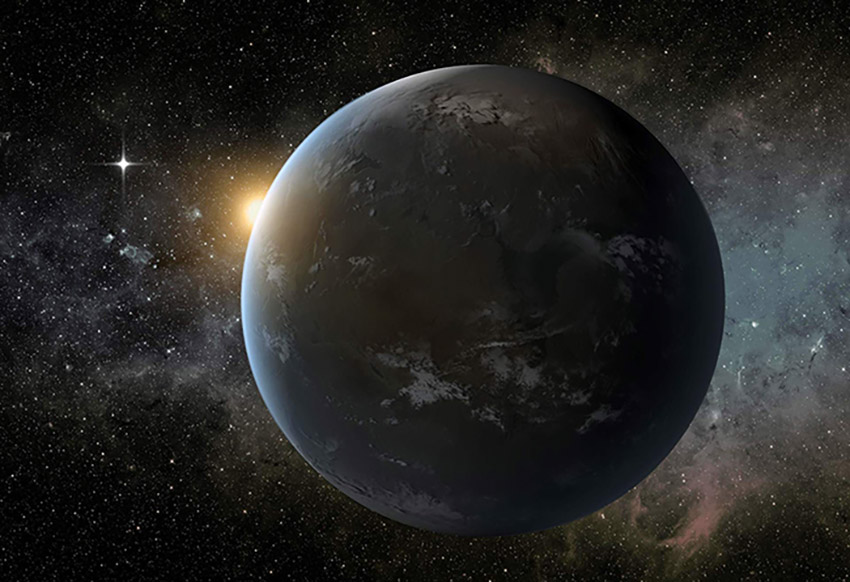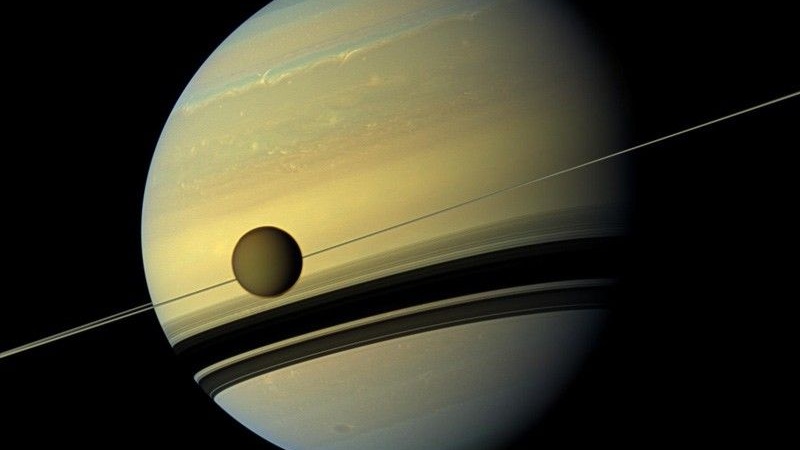Nearby Alien Planet's Climate Swings May Be Too Wild for Life

Breaking space news, the latest updates on rocket launches, skywatching events and more!
You are now subscribed
Your newsletter sign-up was successful
Want to add more newsletters?

Delivered daily
Daily Newsletter
Breaking space news, the latest updates on rocket launches, skywatching events and more!

Once a month
Watch This Space
Sign up to our monthly entertainment newsletter to keep up with all our coverage of the latest sci-fi and space movies, tv shows, games and books.

Once a week
Night Sky This Week
Discover this week's must-see night sky events, moon phases, and stunning astrophotos. Sign up for our skywatching newsletter and explore the universe with us!

Twice a month
Strange New Words
Space.com's Sci-Fi Reader's Club. Read a sci-fi short story every month and join a virtual community of fellow science fiction fans!
One of the closest rocky planets to Earth could have a wild climate that oscillates quickly between hot and cool periods, a new study reports.
This planet, known as Wolf 1061c, resides in the "habitable zone" of its host star, that just-right range of distances where liquid water could theoretically exist on a world's surface. But it's far from clear if Wolf 1061c could actually support life as we know it, study team members said.
For starters, Wolf 1061c — which circles a star located just 14 light-years from Earth's sun — lies at the inner edge of the habitable zone, similar to where Venus is in Earth's solar system. Venus has a hellish environment today, with surface temperatures reaching nearly 900 degrees Fahrenheit (480 degrees Celsius). [Gallery: The Strangest Alien Planets]
Venus likely had oceans on its surface in the past, but was so close to the sun that the heat made all the oceans evaporate. The water vapor assisted in trapping heat, contributing to Venus' runaway greenhouse effect.
Something similar may have happened on Wolf 1061c, said the new study's lead author, Stephen Kane, of San Francisco State University.
Wolf 1061c is "close enough to the star where it's looking suspiciously like a runaway greenhouse," Kane said in a statement.
Kane and colleagues studied Wolf 1061c's parent star in detail using the Center for High Angular Resolution Astronomy array, which is located at the Mount Wilson Observatory in California. The researchers' detailed measurements allowed them to better characterize the star's habitable zone and the conditions that planets in the system likely experience. (Wolf 1061c is one of three worlds known to circle the star; all are "super-Earths," planets slightly larger than Earth.)
Breaking space news, the latest updates on rocket launches, skywatching events and more!
"The Wolf 1061 system is important because it is so close [to Earth], and that gives other opportunities to do follow-up studies to see if it does indeed have life," Kane said.
The team found that Wolf 1061c's orbit varies at a faster rate than that of Earth, and this likely leads to greater climatic variations than Earth experiences.
"It could cause the frequency of the planet freezing over or heating up to be quite severe," Kane said.
So it's unknown whether or not Wolf 1061c actually is habitable, study team members said. Getting to the bottom of this question may require more-advanced telescopes than are currently in operation, the researchers added.
One future instrument that should help is NASA's $8.8 billion James Webb Space Telescope, which is scheduled to launch in late 2018 and succeed the Hubble Space Telescope, Kane said. Webb is expected to reveal the composition of nearby exoplanet atmospheres in detail.
Findings from the new study will appear in the next issue of the Astrophysical Journal. A preprint version is available now on the website arXiv.
Follow Elizabeth Howell @howellspace, or Space.com @Spacedotcom. We're also on Facebook and Google+. Original article on Space.com.

Elizabeth Howell (she/her), Ph.D., was a staff writer in the spaceflight channel between 2022 and 2024 specializing in Canadian space news. She was contributing writer for Space.com for 10 years from 2012 to 2024. Elizabeth's reporting includes multiple exclusives with the White House, leading world coverage about a lost-and-found space tomato on the International Space Station, witnessing five human spaceflight launches on two continents, flying parabolic, working inside a spacesuit, and participating in a simulated Mars mission. Her latest book, "Why Am I Taller?" (ECW Press, 2022) is co-written with astronaut Dave Williams.
